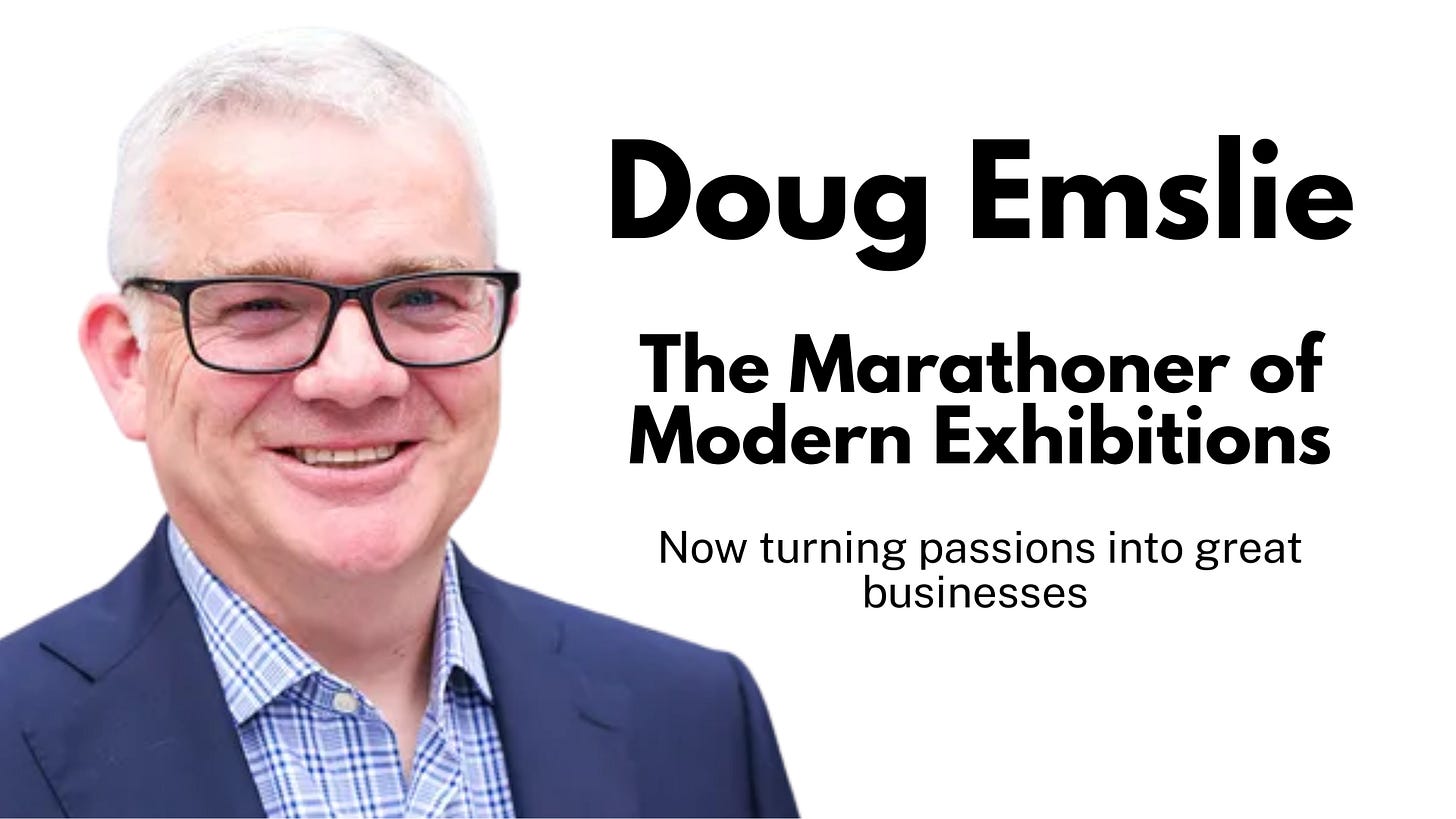Doug Emslie — The Marathoner of Modern Exhibitions
He built a global exhibition empire, sold it to Informa, and now runs a new race—turning passions into smart event businesses.
Doug Emslie doesn’t meditate. He runs. The repetition is the point—the way a route, done again and again, reveals new details and patterns you’d never notice once. In London, in Dubai, or whichever city he’s landed in, he finds a loop. He knows when the lights change, where the pavement dips, which corner floods after rain. The body takes over, and the …




